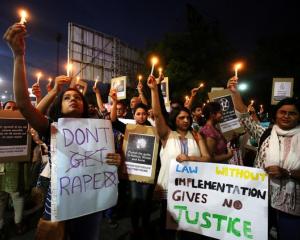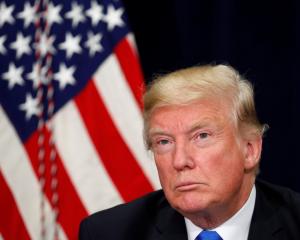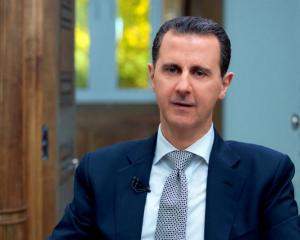The Obama administration has frozen the US assets of Syria's foreign minister and two other senior officials in response to Syria's increasingly violent crackdown against anti-government protesters.
Along with Foreign Minister Walid al-Moualem, the Treasury Department action targets Bouthaina Shaaban, a top political adviser and spokeswoman for Syrian President Bashar al-Assad, and Syria's ambassador to Lebanon, Ali Abdul Karim Ali.
State Department spokeswoman Victoria Nuland told reporters the United States had imposed the sanctions on the three because of the "role that they play in propagating and advancing the reign of terror that Assad is exacting on their own people."
The move comes as the United States, the European Union and some of Syria's neighbors seek to ratchet up pressure on Assad, who has responded to the demonstrations seeking his ouster with lethal military force and detentions.
Security forces shot dead four demonstrators on Tuesday, including a 13-year-old boy, as people streamed out of mosques after prayers to mark the end of Ramadan and renewed protests against Assad, activists and residents said.
Tuesday's sanctions are the latest in a series that the United States has imposed since the protests began and appear aimed at making clear to Assad's top lieutenants that they are not immune from U.S. punishment.
US President Barack Obama on August 18 called on Assad to leave power but the Syrian leader has shown no signs of doing so.
"We are are bringing additional pressure to bear today directly on three senior Assad regime officials who are principal defenders of the regime's activities," David Cohen, Treasury's undersecretary for terrorism and financial Intelligence, said in a statement.
The order freezes assets that the three officials have that are subject to US jurisdiction and generally prohibits Americans from engaging in transactions with them.
It was not immediately clear what assets, if any, belonging to the three officials fell under US jurisdiction. A Treasury official would not comment on the amount of assets frozen.
Nuland said it appeared that the US obligations as the host country for the United Nations meant that the latest sanctions probably would not prevent the three from attending UN events in New York.
Nuland called Shaaban "the public mouthpiece" for the regime's repression and said Washington believed Ali's "activities in Lebanon were not compatible with his diplomatic status" -- a phrase typically used when a diplomat is accused of spying.
She had particularly harsh words for Moualem, whom she accused of being an apologist for Assad.
"He has continued to beat this drum of international conspiracy and has attempted to cover up the regime's horrific activities by making claims that terrorists or others were responsible," Nuland said, although she added that the United States remained willing to meet him.
"We want to make clear that we are holding him and these other two personally responsible for propagating and advancing the regime's violence," she said.
Treasury's action was the seventh time since April that the US government has imposed sanctions on Syria. Previous rounds have targeted Assad and other top aides, Syria's security forces, state-owned banks and the energy sector.
Moualem, a former ambassador to Washington, had been widely seen as a moderate within Assad's Cabinet.
Shaaban, one of the few women in prominent positions in the Syrian government, in the past has appeared at Washington events to defend Damascus' viewpoint. Once anti-government protests broke out in the spring, she articulated the Assad government's public response.











